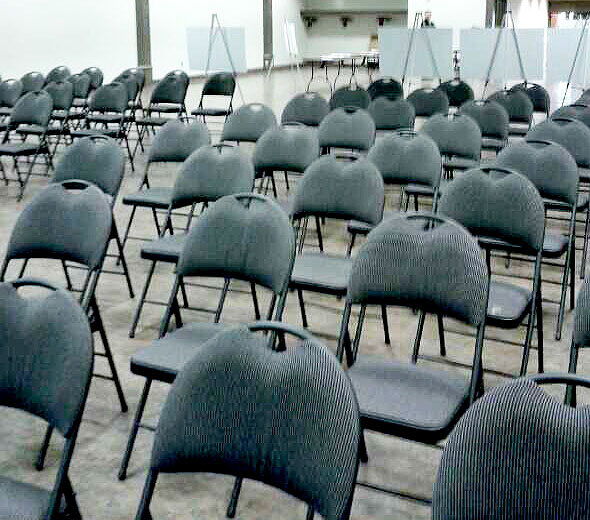
(Brockville Mental Health Centre partient Sal Beninato is seen in this submitted still from the documentary Out of Mind, Out of Sight.
A free community screening of the documentary takes place Wednesday night at the Brockville Arts Centre, followed by a panel discussion.)
I wrote recently about the head of forensic psychiatry at Royal Ottawa praising Brockville for being “tolerant” of the Brockville Mental Health Centre and its role in the community.
Such tolerance, said Dr. A.G. Ahmed, is what allows the BMHC to succeed at a national level with its rehabilitative work. It might ultimately bring to fruition plans to locate a treatment centre here for female inmates with mental illness.
I responded by suggesting there had been no definitive attempt to answer the question of our tolerance of “The Psych,” or lack thereof.
A history of coexistence spanning decades has of course answered that question in the most practical way.
But there will always be challenges to a community's tolerance, as witnessed by some of the comments under the story that most recently brought this issue back to light.
Witness, also, this little gem of not-in-my-back-yard quasi-bigotry nestled in a long list of comments on Brockville's new zoning bylaw: “Do not waste tax dollars on group homes for mentally ill.”
City staff's curt response to this suggestion notes “the funding/development of group homes is not directly related to the zoning bylaw.”
I would have liked to delve further into this brief comment. Is the development of a group home a waste of tax dollars, or is it the mere fact of caring for the mentally ill?
What, in fact, does the commenter mean by “mentally ill”?
Or is it simply that, like Doug Ford, the commenter thinks group homes “ruin” a community?
I understand the concerns of residents who may sometimes feel group homes are dropped in their neighbourhoods without much notice.
The broader social benefit of integrating people with certain types of mental illness in the community is lost if neighbourhood residents are not on board with the process – if, in a word, they are not “tolerant.”
The proposed zoning bylaw does make a distinction between group homes that are permitted in residential zones and “institutional residences” which are larger and “would not necessarily be compatible in a residential zone.”
People who believe such distinctions need to be stricter or more precise, with a greater mechanism for public input, had a chance to make such suggestions at the most recent public meeting on the zoning bylaw, held a week ago.
What we saw, however, was this:

As for those who think any kind of group homes are a waste of taxpayer money, well, city hall can't regulate tolerance – or bigotry.